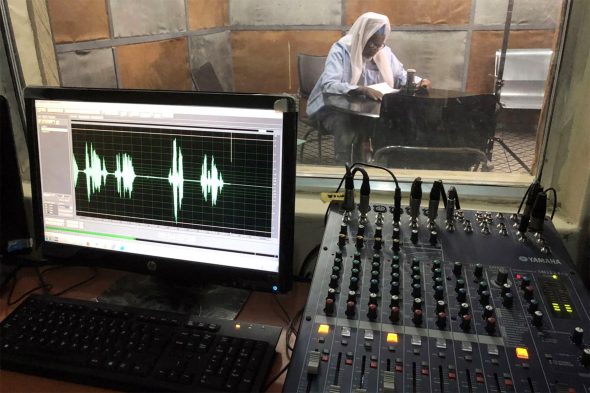Forgiveness messaging increases willingness to accept former Boko Haram fighters returning home
For government leaders in some parts of the world, managing the re-entry of former members of violent extremist groups into general society presents various challenges, including gaining the trust and forgiveness of community members who were terrorized.
“We need to stop armed conflict in so many places, but the question becomes: What happens to a fighter when they lay down their weapons and want to go home?” said University of Illinois Chicago social psychologist Rebecca Littman. “Would you welcome someone like that back into your neighborhood? We simply don’t have a lot of evidence on what to do.”

To study what role and impact trusted authorities such as religious leaders might have in improving community acceptance in an area deeply affected by this type of conflict, Littman and a team of researchers traveled to Maiduguri, Nigeria, the birthplace of the violent extremist group Boko Haram. This work was done by Littman while she was a postdoctoral researcher at Yale University.
Working with the international humanitarian and development agency Mercy Corps to implement the study, they randomly offered community members the chance to listen to one of two simulated radio broadcasts. Participants either heard a respected Muslim sheikh talking about the importance of forgiveness in the Islamic tradition, announcing that he would forgive and calling on listeners to do the same, or an informational broadcast on health and hygiene.
“Previous studies have shown trusted authorities’ messages can be effective in creating attitude change and shifting perceptions of social norms. Religious leaders are considered trusted authorities in many communities worldwide, so we sought to test whether they could change minds and shift norms around the incredibly complicated topic of reintegration,” said Littman, UIC assistant professor of psychology and co-author on the study.
Later when participants were asked about a hypothetical former fighter who wanted to return to their community, 70% of those who heard the forgiveness messaging said they were willing to have him return to their community, compared with 60% of those who had heard the other message.
The findings, which are featured in Proceedings of the National Academy of Sciences, suggest that these leaders can be effective messengers for promoting peace to an unreceptive population. The leader’s message also made people think that others in their community were more supportive of reintegration.
Littman said the study is timely considering that thousands of Boko Haram affiliates have recently surrendered and government leaders are dealing with the growing peace and policy challenges presented by the defections and their pending reintegration.
“The combination of large-scale campaigns of violence against civilians and the indoctrination and radicalization process employed by extremist groups can lead to anger and increase mistrust and wariness that former members have been irrevocably changed,” she said. “Messages from religious leaders can help smooth the way for the reintegration of former members into communities, an important step in restoring peace.”
The research was supported by the U.S. Department of State and the UK Foreign, Commonwealth and Development Office, awarded through Innovation for Poverty Action’s Peace and Recovery Program.
Co-authors of the paper include Graeme Blair, Chad Hazlett and Jiyoung Kim of the University of California, Los Angeles; Elizabeth Nugent of Yale University; Rebecca Wolfe of the University of Chicago; Mohammed Bukar of Mobukar Research Consultancy, Nigeria; Benjamin Crisman of Princeton University; and Anthony Etim of Mercy Corps.
